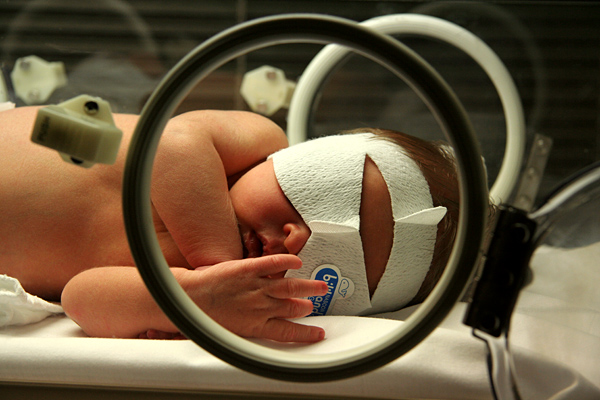Playlist
Show Playlist
Hide Playlist
Fetal Hemolytic Disease
-
Slides FetalHemolyticDisease Obstetrics.pdf
-
Download Lecture Overview
00:01 Today we're going to talk about fetal hemolytic disease. 00:04 So what happens in fetal hemolytic disease. 00:07 Well, this is something that only effects Rh negative moms. 00:11 So if mom is Rh negative and we have a baby that is Rh positive, the antigens on the baby's blood can cause an immune response in the mom's blood that creates antibodies. 00:24 Now this isn't an issue for first pregnancy. 00:27 It's the subsequent pregnancies that may have a problem. 00:31 So again we have an Rh negative mom who has now been sensitized and has antibodies against the Rh positive antigens. 00:39 So if she has a baby that is Rh positive, expressing those antigens, those antibodies will go and attack that baby. 00:46 Now what is the result, hydrops fetalis, hypoxia or even death of that baby or that infant. 00:54 So how we prevent hemolytic disease of the new born. 00:58 Well, use a medication call "Anti-D" or sometimes known as RhoGAM. 01:02 We give this medication at 28 weeks of gestation. 01:06 Also we give it if there's bleeding at any point during the pregnancy and after birth if the baby is Rh positive. 01:12 So how does the medicine work? We administer this medication and it binds to the Rh positive antigens on circulating fetal RBCs in maternal blood, thus preventing the formation of maternal antibodies. 01:25 So let's discuss a question. 01:26 Let's go through a case. 01:28 A 19 year old female with an incomplete abortion presents to the emergency room. 01:34 On physical exam, vital signs are stable. 01:35 On pelvic exam, products of conception are seen at the cervical os. 01:39 Her initial laboratory evaluations shows a hemoglobin of 13. 01:44 Her blood type is 0 negative. 01:46 In addition to addressing her abortion, what interventions are necessary? A. A blood transfusion for anemia. 01:54 B. Rubella immunization C. Anti-D immune globulin or D. Prophylactic Antibiotics. 02:02 What do you think? Well, the answer is C. 02:07 So let's go through the choices. 02:08 Well she doesn't need a blood transfusion because she's not anemic. 02:10 And rubella immunization, we don't know her rubella status to know if she would need that. 02:16 But we definitely know she needs Anti-D immune globulin. 02:19 Again she is 0 negative and we do not know what the products of conception blood type was. 02:23 If the products of conception had a positive blood type, remember mom can develop antibodies and that can affect her future pregnancies.
About the Lecture
The lecture Fetal Hemolytic Disease by Veronica Gillispie, MD, MAS, FACOG is from the course Antenatal Care.
Included Quiz Questions
What is the risk of Rh-negative maternal sensitization to an Rh-positive fetus?
- Hydrops fetalis in subsequent pregnancies with an Rh-positive fetus
- Fetal death of first pregnancy with an Rh-positive fetus
- Maternal hypoxia
- Maternal anemia
- Anti-D immunoglobulin formation
In which of the following circumstances should anti-D immunoglobulin NOT be given to an Rh-negative mother?
- After birth, if the fetus is confirmed Rh-negative
- Miscarriage in the first trimester
- Second-trimester bleeding without fetal loss
- At 28 weeks of pregnancy
- First-trimester vaginal bleeding
Customer reviews
5,0 of 5 stars
| 5 Stars |
|
5 |
| 4 Stars |
|
0 |
| 3 Stars |
|
0 |
| 2 Stars |
|
0 |
| 1 Star |
|
0 |




